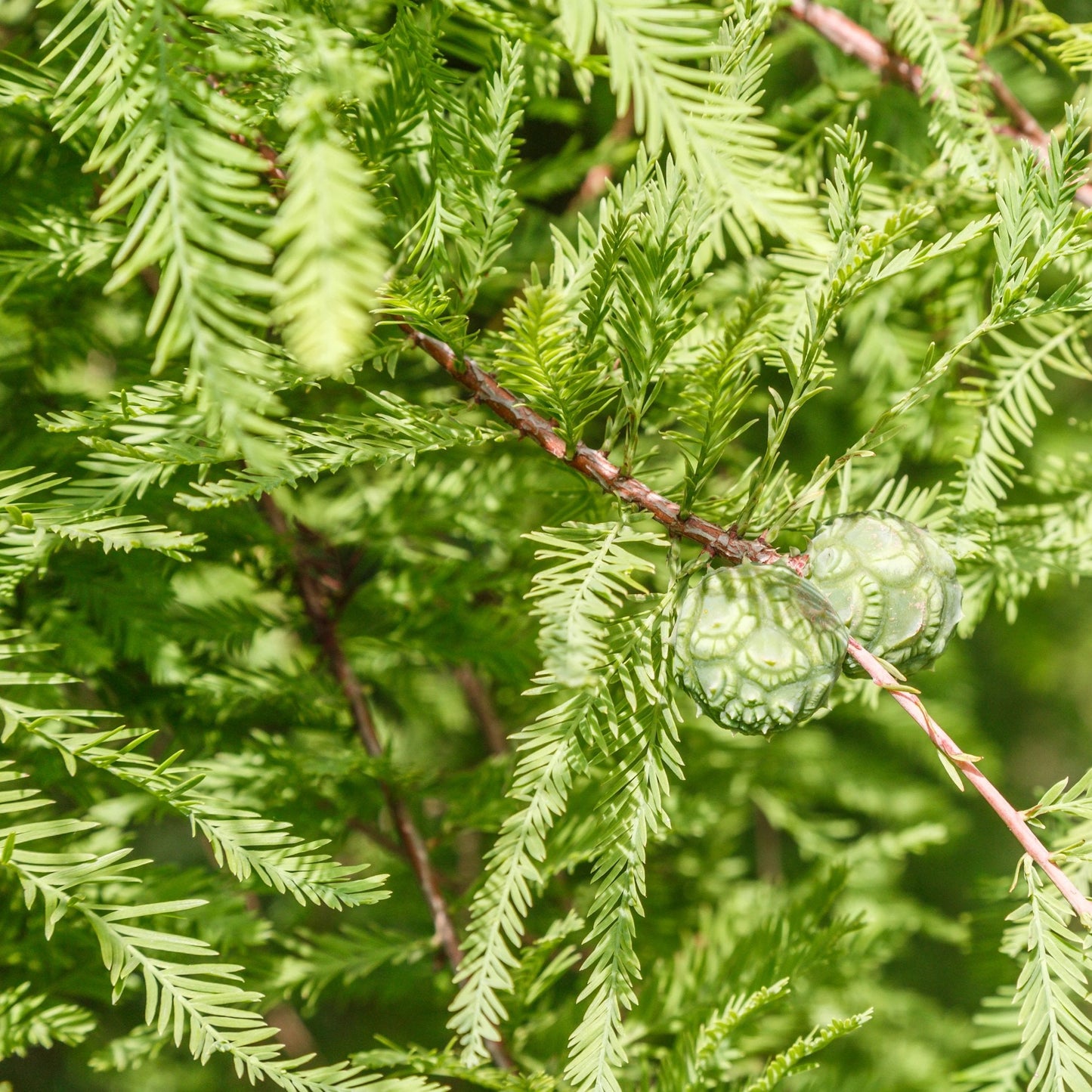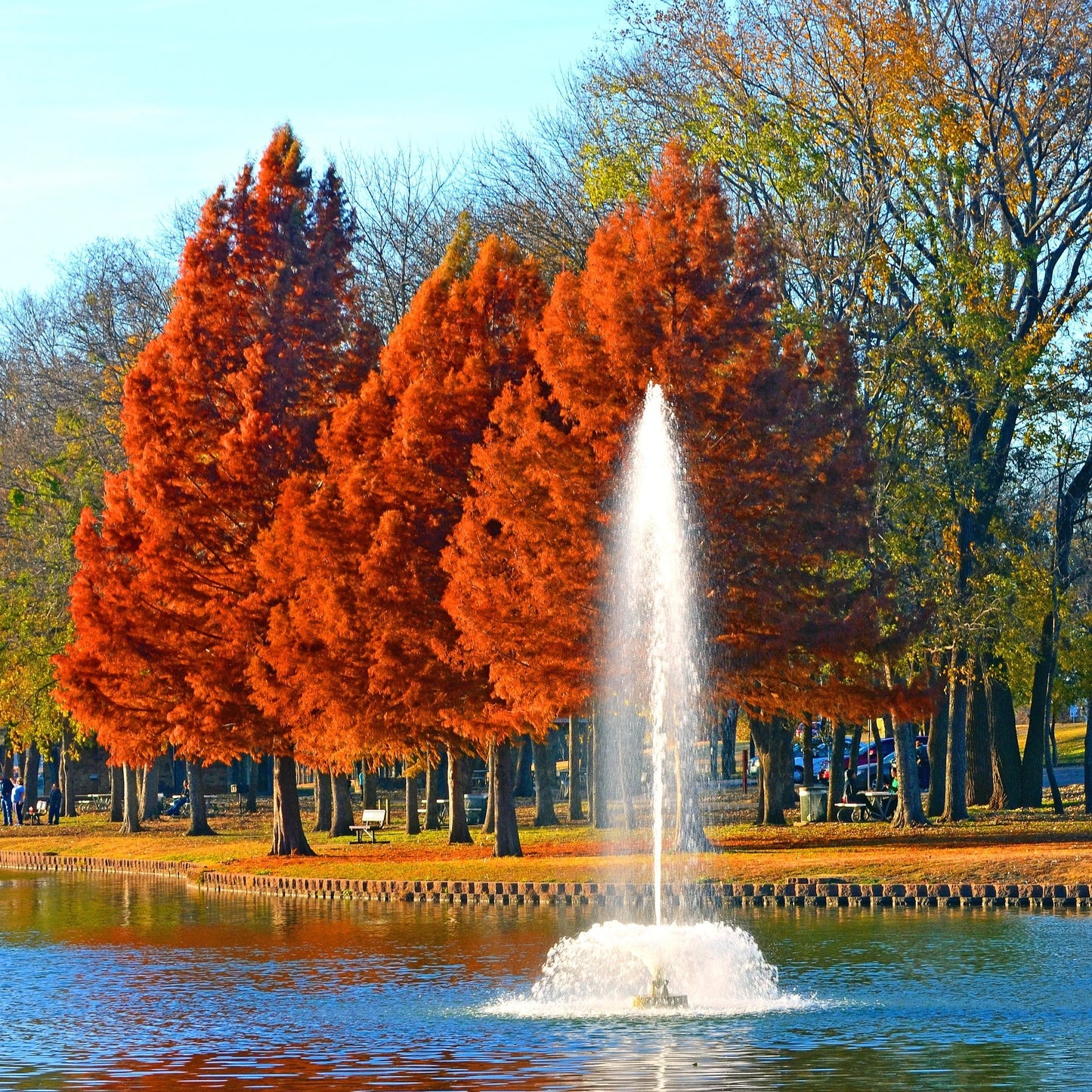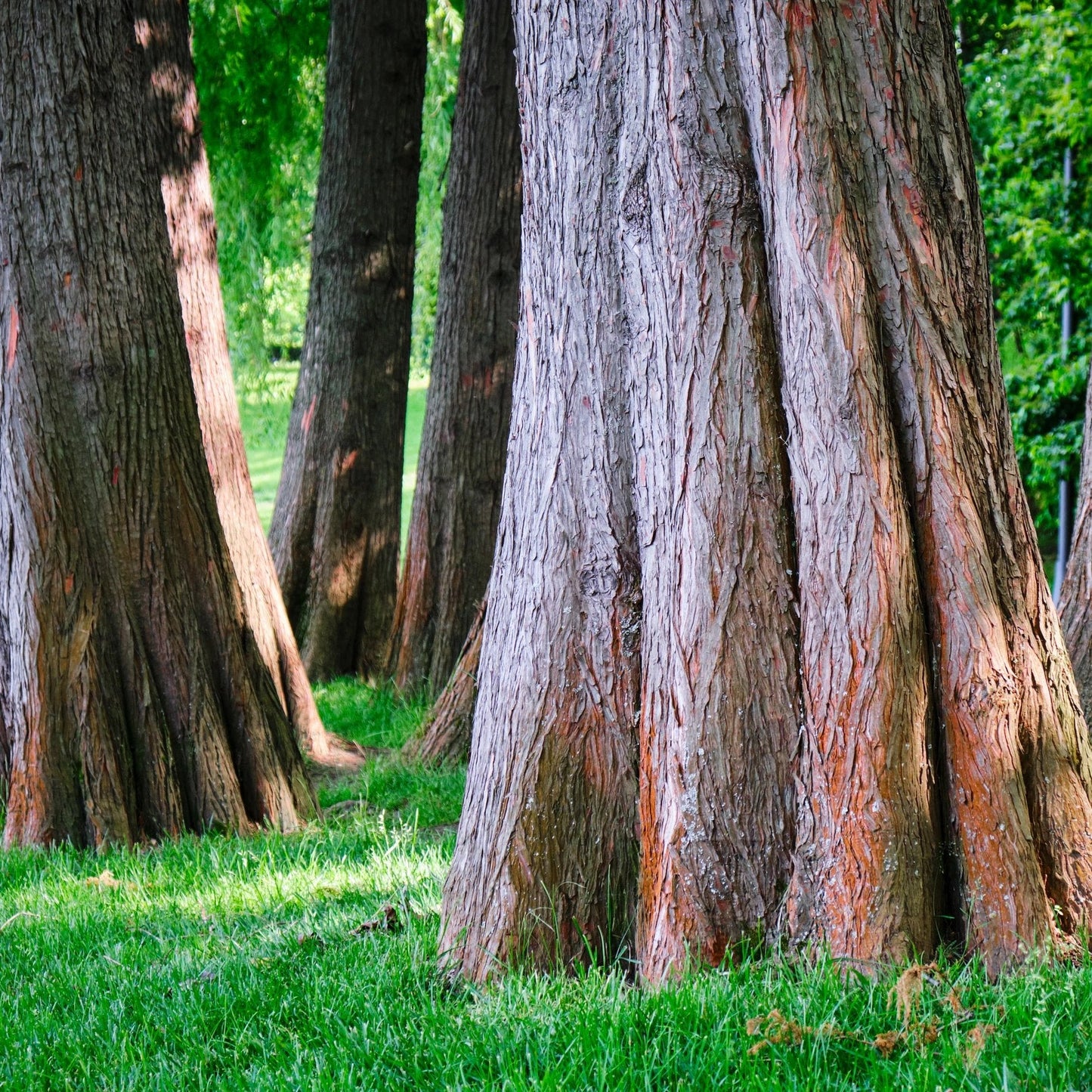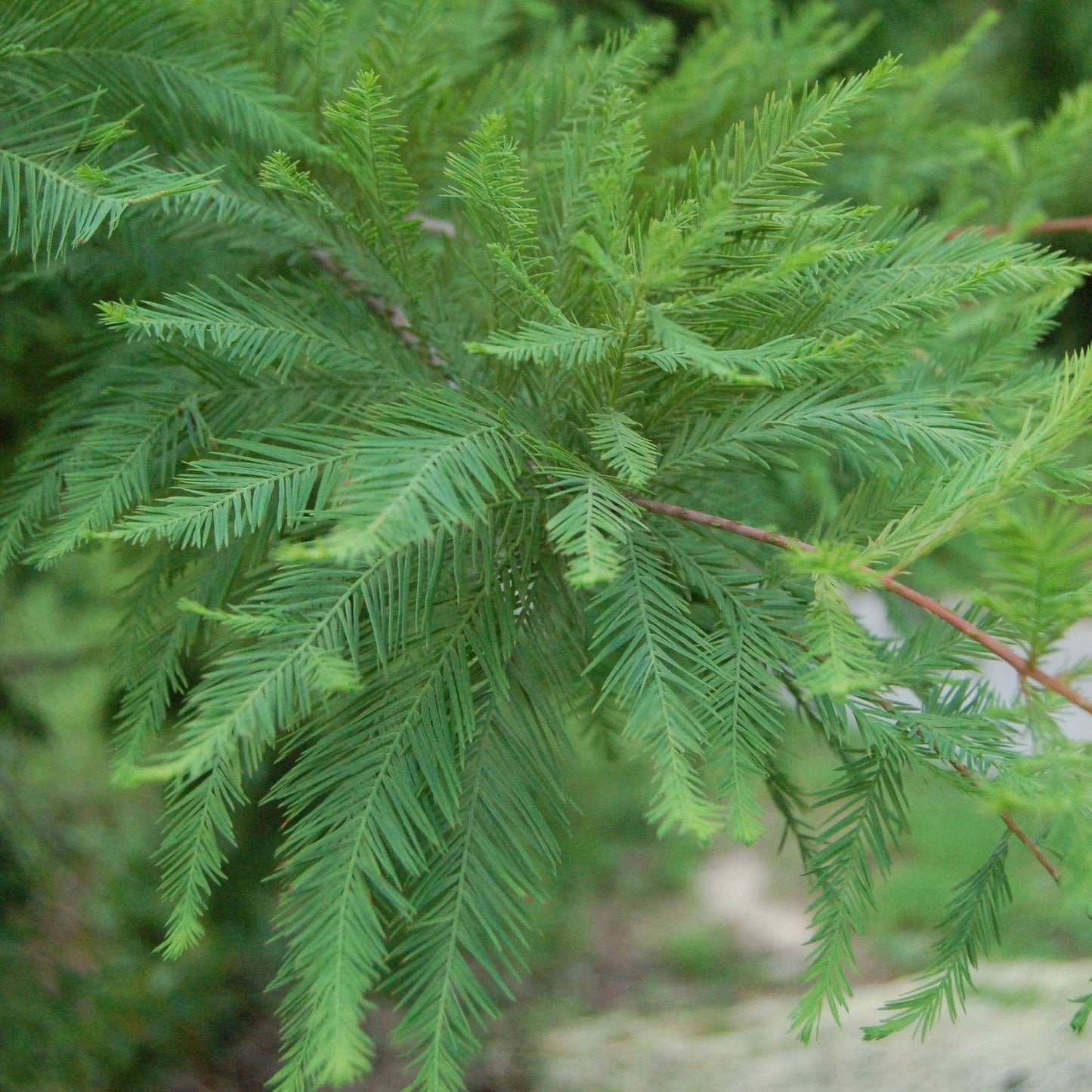Limited Quantities - Reserve Now For Fall
-
Intermediate Zones 4-10

-

-

-

Bald Cypress Tree
Bald Cypress Tree
Couldn't load pickup availability
Taxodium distichum
The Bald Cypress Tree is a majestic, long-lived deciduous conifer known for its graceful, feathery foliage, adaptability to wet conditions, and unique ability to thrive in swampy areas. Despite its preference for wet soils, this resilient and drought-tolerant tree can also flourish in drier landscapes, making it an excellent choice for shade, erosion control, and ornamental beauty. With its golden-orange fall foliage, deeply furrowed bark, and distinctive “knees” in wet areas, the Bald Cypress is a timeless addition to any landscape.
Bald Cypress Tree
| Attribute | Details |
|---|---|
| Variety | Rooted |
| Botanical Name | Taxodium distichum |
| Common Names | Bald Cypress, Swamp Cypress, Southern Cypress |
| Mature Height | 50-70 feet (can reach up to 100 feet in ideal conditions) |
| Mature Width | 20-30 feet |
| Growth Rate | Moderate to Fast (1.5-3 feet per year) |
| Lifespan | 200-600 years |
| USDA Hardiness Zones | 4-10 |
| Sun Preference | Full sun (6+ hours of direct sunlight) |
| Soil Type | Well-drained, loamy, sandy, clay, or wet soils |
| Soil pH | Slightly acidic to neutral (5.5-7.5) |
| Water Needs | Moderate to high; thrives in wet or flooded areas but adapts to drier soils once established |
| Fall Foliage | Golden-orange to coppery brown |
| Wildlife Attraction | Birds, squirrels, waterfowl, pollinators |
| Growth Habit | Upright, pyramidal canopy with strong, straight trunk |
| Self-Pollinating? | Yes |
| Landscape Uses | Shade tree, wetland restoration, erosion control, ornamental landscaping, urban tree planting |
| Maintenance Level | Low |
Environmental Benefits
🌿 Thrives in Wet & Flood-Prone Areas – One of the best trees for swampy or poorly drained soils, helping absorb excess water and reduce flooding.
🌳 Erosion Control & Soil Stabilization – Deep root system prevents soil erosion along riverbanks, lakes, and wetlands.
🐦 Wildlife Habitat – Produces small cones that feed birds and waterfowl, while its branches provide nesting sites for wildlife.
🍂 Seasonal Beauty & Carbon Absorption – Absorbs carbon dioxide efficiently, making it a great tree for improving air quality while providing stunning fall foliage.
Pros & Cons
| Pros | Cons |
|---|---|
| Tolerates wet, flooded, and dry conditions | May develop “knees” (woody root projections) in wet areas, which can affect mowing |
| Long-lived and disease-resistant | Takes many years to reach full maturity |
| Beautiful golden-orange fall foliage | May require occasional pruning in urban settings |
| Great for erosion control and wetland restoration | Deciduous, meaning it sheds its needles in fall, unlike other conifers |
| Pyramidal shape and unique bark add year-round visual appeal | Requires ample space due to its large size |
Planting & Care Guide (Bare Root)
- Spacing: Plant 20-30 feet apart for individual trees or closer for a naturalized setting
- Soaking: Soak bare root in water for 6-12 hours before planting
- Planting Depth: Dig a hole twice the width of the root system, ensuring roots are level with the soil surface
- Mulching: Apply a 2-3 inch layer of mulch to retain moisture and suppress weeds
- Pruning: Minimal pruning required; remove dead branches in late winter or early spring
- Fertilization: Apply a balanced slow-release fertilizer in early spring to encourage growth
- Watering: Water regularly in the first year, then reduce as the tree matures
The Bald Cypress Tree is a stunning, adaptable, and long-lived tree that thrives in both wet and dry conditions, making it perfect for flood-prone areas, urban landscapes, and naturalized spaces. Whether used for shade, erosion control, or ornamental beauty, this resilient and low-maintenance tree is a lasting investment in any landscape.
Share








